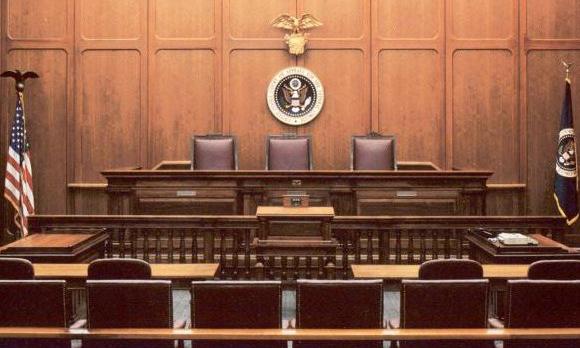In a new filing lodged with the U.S. Court of Appeals for the Federal Circuit this week, Apple claims Google's Motorola demanded unreasonable rates for tech based on deemed standard essential patents, with fees 12 times higher than what Motorola charged other companies.
The CAFC filing, an opening brief from Apple regarding the dismissal of a FRAND-related action from Wisconsin, is one of the first developments in the case likely to be heard by the court in early 2014, reports FOSS Patents' Florian Mueller.
Motorola is appealing the partial summary judgment win for Apple over a FRAND contract and antitrust case leveled in Wisconsin, which was ultimately dismissed without prejudice in 2012 by Judge Barbara Crabb.
A portion of Apple's brief states Motorola "demand[ed] that Apple take a license at a rate that was more than 12 times what Motorola was charging other licensees for the same technology— a rate that was unfair, unreasonable, and decidedly discriminatory." At the time, Motorola was asking Apple for 2.25 percent, a rate unsupported by previous deals. Apple says the demand would represent approximately $12 per iPhone, or "12 times what Apple was already paying to license Motorola's SEPs," possibly referencing the indirect licensing of technology used in baseband chips and other components.
On that point, Apple notes that a previous proposal to pay Motorola $1 per iPhone was meant to "buy litigation peace and move on." The company says Google's leveraging of Motorola patents has been wholly unsuccessful.
From Apple's opening brief:
Motorola has sued Apple in various forums for infringement of eight SEPs (presumably, its eight strongest SEPs) and is batting 0-for-8 in establishing liability in U.S. actions.
In light of this information, Mueller points out that Apple's proposal was perhaps reasonable, especially considering Motorola's litigation track record. Barring that deal, Apple wants Motorola to actually offer a FRAND rate, a bone of contention that has so far been largely avoided due to the possible negative repercussions of a court rate-setting decision.
While a hearing date has yet to be set for the Wisconsin appeal, Apple is scheduled to begin another CAFC hearing as part of a cross-appeal with Motorola. That hearing, slated for Sept. 11, is in regard to Judge Richard Posner's dismissal of a patent infringement case in 2012.
 Mikey Campbell
Mikey Campbell







-m.jpg)






 Christine McKee
Christine McKee
 Malcolm Owen
Malcolm Owen
 Marko Zivkovic
Marko Zivkovic

 Andrew Orr
Andrew Orr
 Andrew O'Hara
Andrew O'Hara
 William Gallagher
William Gallagher





-m.jpg)



53 Comments
Something is confusing or wrong with the logic in the article. It says Apple is claiming it was being asked to pay 12 times what *other* licensees were paying, then goes on to say that Apple was being asked to pay $12 per iPhone, which is 12 times what Apple was already paying for Motorola SEP's. Hunh?
[quote name="runbuh" url="/t/158734/apple-claims-motorola-discriminated-on-tech-licensing-charged-12-times-going-rate#post_2368708"]Something is confusing or wrong with the logic in the article. It says Apple is claiming it was being asked to pay 12 times what *other* licensees were paying, then goes on to say that Apple was being asked to pay $12 per iPhone, which is 12 times what Apple was already paying for Motorola SEP's. Hunh? [/quote] After your post almost the entire text got a strike through.
So why, again, did Google blow $12.5 billion on Motorola Mobility? I can think of a few reasons: 1. Patent panic 2. Lack of vertical integration 3. Lack of due diligence 4. All of the above
I think one of the things the US Congress needs to do is establish a nation-wide FRAND database that's open to everybody. That way, when Apple get offered a rate, they can tell the company that on the FRAND database, it is not the same rate as they're offering to Apple. Any companies found to offering a rate that's higher than FRAND database should be fined. The fine should be high enough that it'd cost the company more to pay it than decreasing the FRAND rate to match the database price.
Apple is lying; Google can't possibly be doing what they are being accused of because their motto is "don't be evil".